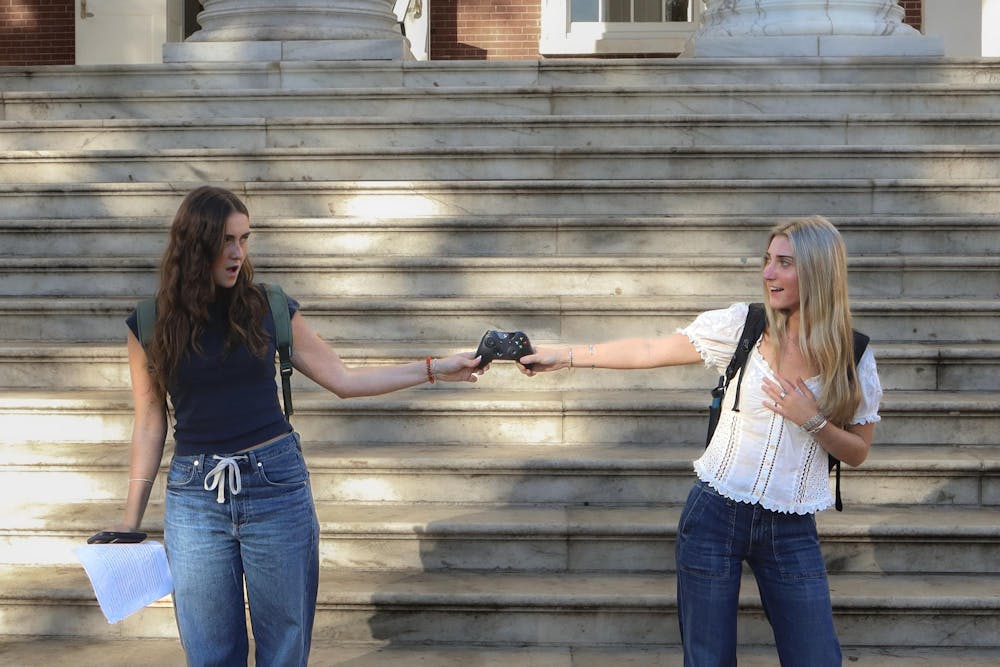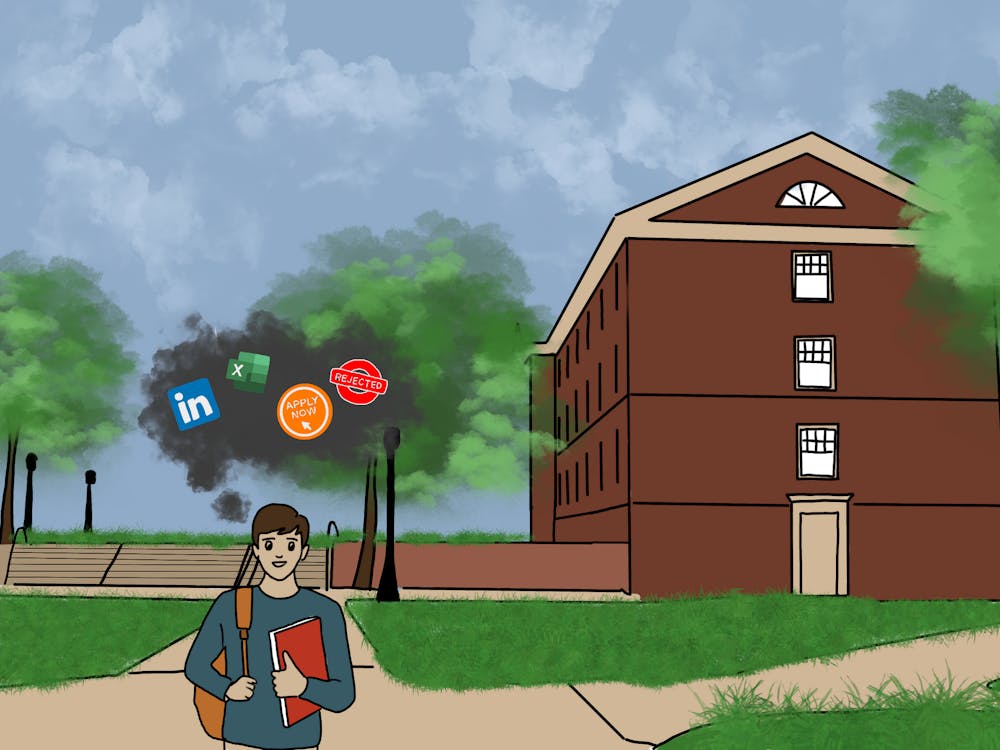Editor’s note: This article is a humor column.
Wednesday, the Board of Visitors formally announced that it will be launching the first-ever University-wide Fortnite tournament. Influenced by both political and financial incentives, the historic event will be televised at Scott Stadium for the whole University community to watch. The date is still to be decided.
Over a year ago, texts surfaced from Board member U. Bertram Ellis Jr., declaring that there was “going to be a battle royale for the soul of the University.” At first, many brushed this aside, thinking Ellis just intended to weaponize his position of power to advance certain personal aims. However, after videos leaked of his thousand-dollar Fortnite skin collection, people knew a tournament was in the works. And the prize was nothing less than the University’s soul.
Sign-ups were initially slow as many found a soul of honor and stewardship to be unenticing. To drive up engagement, the McIntire Investment Institute was tasked with valuating the soul’s economic worth.
“I judge things based solely on how they can benefit me,” MII president J.P. Stanley said, “and I judge them well. The University’s soul is worth at least 500 times that of my watch, or 500 million dollars.”
After MII released its report on the massive economic value of the University’s soul, some readers took issue with the monetization of the University’s mission and soul. Pushing back on the notion that culture and happiness are worth more than money, Stanley responded to opposing claims in a reel posted to the MII Instagram.
“All you loser $%@!%&$ critics don’t know $%#!” Stanley said. “I know business! My current girlfriend is worth 250 dollars. My ex-girlfriend was worth 100 dollars. I made that trade. That’s business!”
All in all, though, the massive assessment has significantly increased engagement. Thousands of students, faculty and alumni have already expressed interest in competing and viewing.
Due to the overwhelming number of competitors to win the University’s valuable soul, teams of two must first qualify for the competition itself. Duos can earn one of the 50 spots in the tournament through two qualification streams.
The first path requires competitors to score points through eliminations, damage done and placements. Teams will have 10 games to score as many points as possible and the top 40 teams will get a bid to the televised grand finale. Nevertheless, there is another path.
The 10 remaining teams will qualify through a bidding and brown-nosing — BAB — process as outlined by Vice Provost of Inequity Flanny Flannigan.
“It's really not reasonable to decide all the spots based on merit,” Flannigan said. “This qualification method will score teams on money donated, favor curried and names dropped.”
After qualifying, teams will play in a final series of five Fortnite games. The team with the best average placement will win it all.
Though the Board has heralded the tournament format, very few are fully on board with the two-stream format. Second-year College student Jonah Parkinsons has taken specific issues with the design and how it benefits certain groups.
“It’s like totally unfair that it’s even a thing,” Parkinsons said. “Some of these people got their jobs because of social grifting and money giving! You’re putting pros against bros.”
The Board has been shockingly unreceptive to opposing viewpoints, and the current format is likely to remain unchanged.
Students have been busy training for a shot at the money. Shurian Agrateplaya, Jefferson Society member and second-year College student, has dedicated over 50 hours a week to training for the tournament despite having a loaded schedule.
“I usually use one diaper a day to minimize bathroom time and maximize efficiency,” shared Agrateplaya. “But with my training schedule, it’s gone up to two to three per day. This tournament is almost as stressful as when I had to talk to a girl.”
Agrateplaya isn’t the only one putting his nose to the grindstone and ignoring his duties. The Office of Student Affairs reported that in-class attendance decreased to 54 percent from its five-year high of 73 percent. Further, Housing and Residence Life has noted a 37 percent downturn in program attendance. Students are just too preoccupied with full-boxes and cranking 90s to do much else.
In the wake of this fanaticism, a new wave of attention has colored the event. An underground network of bookies and bets has cropped up. Felt Loving, bookie and fourth-year College student, is the current head of the operation.
“Yeah we got a whole list of over/unders and parlays and everything else,” Loving said. “I got 20 bands of bets set. For a guy like me, it’s nothing. Personally, my parlay has Jim Ryan and his wife placing at least tenth, and the Board team eliminating at least three UGuide members. It’s for sure a lock.”
All in all, bettors have placed over $300,000 in wagers for the upcoming event. The most common bet has Dominion Energy CEO and Board member Robert Blue winning it all.
“What can I say,” Blue said. “I really am just goated on the sticks.”
The overwhelming support for an individual player winning it all has Board members wondering who they should be serving in this battle royale — the University, the students or themselves?
The Board will be holding a secret closed session meeting to decide their most publicly important task.







